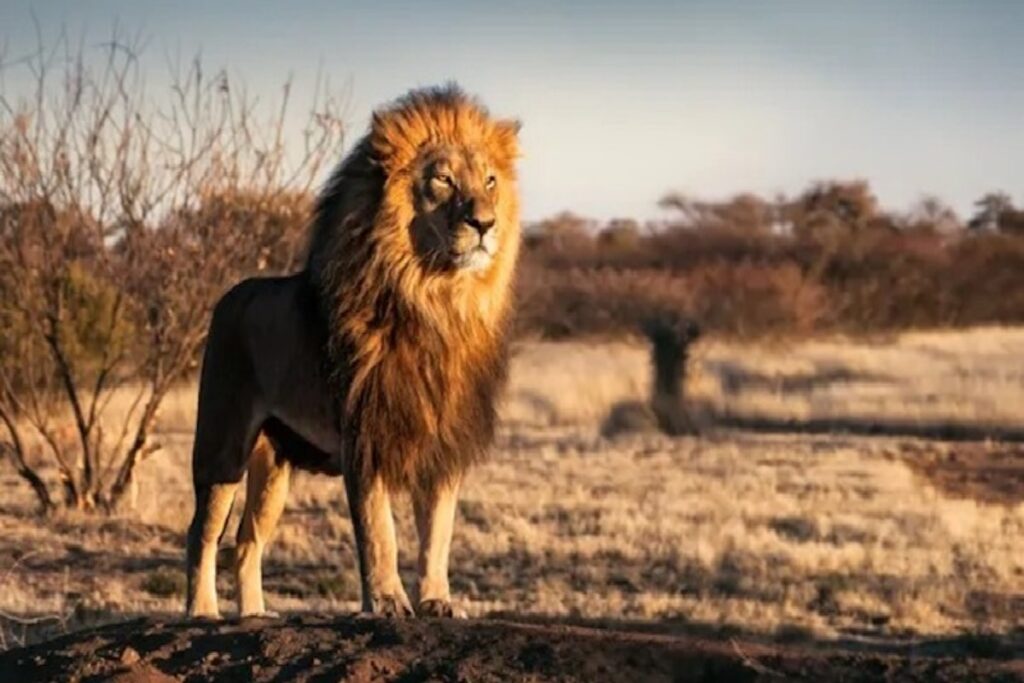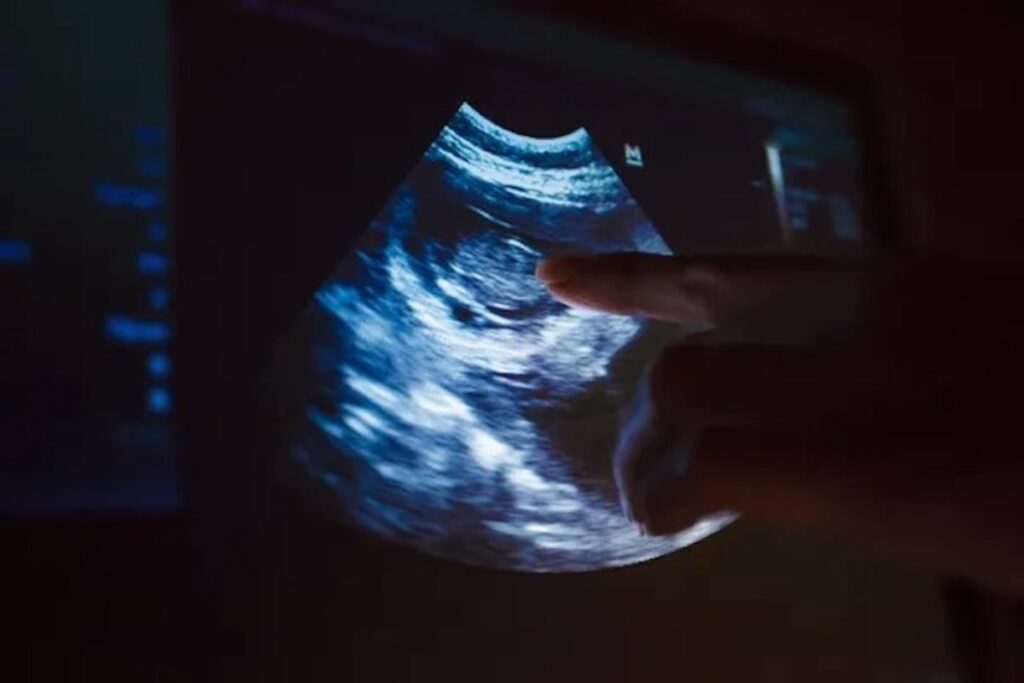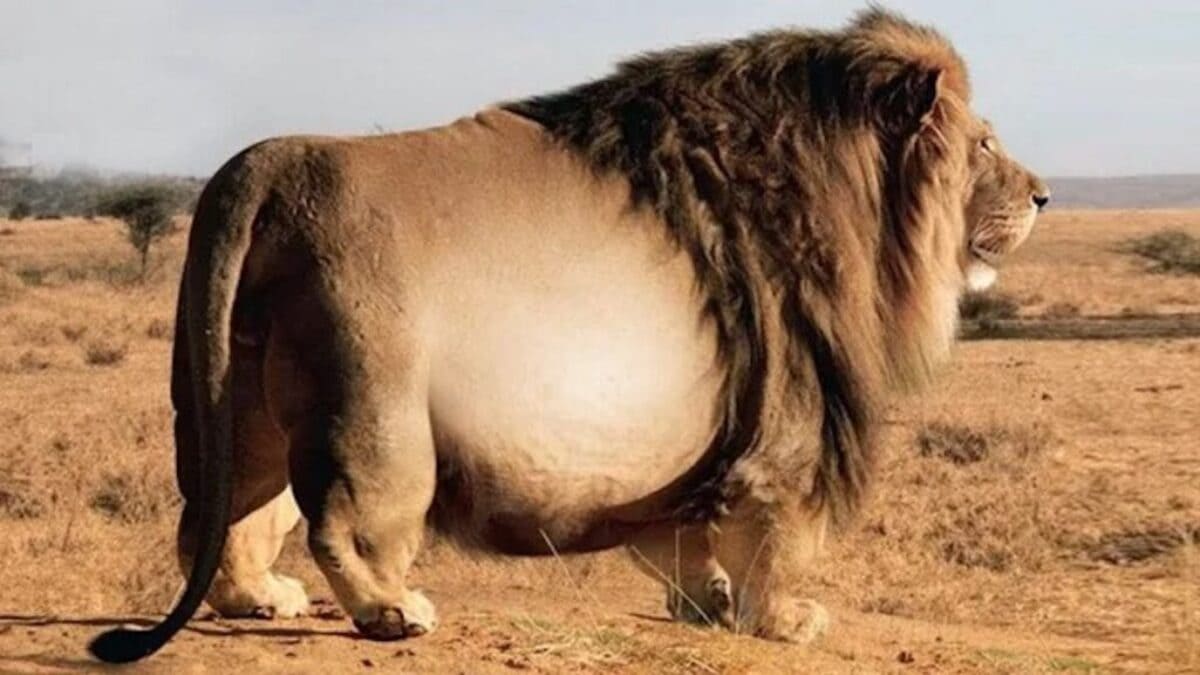Safari work is rarely predictable, but every ranger knows the rhythm of the savannah: long stretches of quiet, punctuated by moments that jolt the heart. For George, a seasoned ranger who has spent years watching over wildlife, one such moment arrived late in the afternoon—an encounter so extraordinary it made him question his own eyes.
A Giant in Trouble
George was wrapping up his patrol when he noticed an unusually large silhouette slumped in the tall grass. At first, he assumed it was the light playing tricks on him. But as he drove closer, the reality came into focus: it was the alpha male, the dominant lion of the territory—and he was clearly in distress.
Safari rangers like George and his colleague Mark are the quiet guardians of these landscapes, often working under relentless heat and the constant shadow of poaching threats. When an apex predator shows signs of trouble, they move fast.

The Ultrasound No One Expected
The rangers immediately called a local wildlife veterinarian. The lion was breathing heavily, his abdomen grotesquely swollen—enough to worry even an experienced vet. After sedating the big cat, the vet performed an ultrasound, and the image on the screen stopped everyone cold.
There, inside the lion’s stomach, was a huge mass of unprocessed meat—and lodged within it, a small electronic device. The vet recognized it instantly: a tracking chip commonly used by poachers to locate valuable animals deep inside protected reserves.
For a moment, no one spoke. As the vet later explained, “When you see that kind of foreign object inside an animal, you know immediately it’s life-threatening—and deliberate.”

A Race Against Time
The vet made the decision without hesitation: surgery had to happen immediately. Rangers formed a protective perimeter while the veterinary team began the delicate procedure. After a tense operation, the obstruction was removed—a disturbing testament to how far poachers will go.
Miraculously, the lion pulled through. His heart rate stabilized, his breathing eased, and slowly, he began to recover his strength.

The Chip That Broke a Case
Once the electronic device was extracted, authorities launched a full investigation. The signal from the chip allowed them to trace movements and establish links between the device and a suspected poaching network.
Within days, several individuals were arrested.
What began as a medical emergency turned into a major breakthrough against illegal wildlife trafficking—an industry that the World Wildlife Fund has repeatedly described as one of the most lucrative and destructive in the world.
A Return to the Savannah
Weeks later, George watched the lion stride back into his territory, proud and powerful once more. The rangers couldn’t help but feel a surge of relief—and pride. Their quick reaction had saved not just a lion, but an entire pride’s stability.
The vet summed it up best: “Rangers like George and Mark don’t just protect animals; they protect ecosystems. Without people like them, stories like this wouldn’t have a happy ending.”
In a world where wildlife faces increasing danger from human activity, moments like these—of courage, compassion, and teamwork—shine all the brighter.

